The Covenants of the Old Testament
by Dan Severson
For Christians, the Jewish Bible is known as the Old Testament because it is focused on the covenant made with the Hebrew people through Moses, the most revered of the prophets. The Hebrew people used this term to describe agreements or promises that God made with them. The word “covenant” was taken from diplomatic language that was used in the ancient world. It was a common practice for over two thousand years for large empires to make covenants with smaller kingdoms. Smaller kingdoms were often attacked and occupied by larger kingdoms for a variety of reasons, such as a desire for natural resources, or to force a smaller kingdom to pay a tribute. To defend themselves, smaller kingdoms made an agreement with an empire of some sort, generally a trade of tax revenue for protection. This was called a covenant. “Covenant” and the word “testament” mean the same thing.
Throughout the narrative of the Old Testament, God makes four covenants. The first covenant was made with Noah. According to this covenant, God made an unconditional covenant that he would never destroy the earth again with a flood. The second covenant was made with Abraham and Sarah. This was a threefold unconditional covenant that included the following promises: they would have countless descendants, a land to live on, and Abraham would somehow be an instrument for the blessing of all the families on the earth. The third covenant was a conditional covenant with Moses. According to this one, the people were commanded to obey God’s laws. If they did, God would bless them with safety from their enemies and prosperity in the land. If they failed to obey these commandments, the first of the Ten Commandments being the most important, God would give them up to their enemies and they would experience social decay. This covenant receives extensive attention in the book of Deuteronomy. The fourth covenant was made with David. This was also an unconditional covenant according to which David would be the ancestor of a king of whose kingdom there would be no end.
The book of Deuteronomy is the fifth and last book included in the section named “Torah”. It is believed to have been the sermon Moses gave to the people as they were about to enter the Promised Land. In this sermon, Moses reiterates again and again that if the people observe God’s laws faithfully, and if they continue to worship only the God of Abraham, Isaac, and Jacob, who saved they from slavery in Egypt and led them to the Promised Land, they will be blessed and embraced as God’s own people. If they do otherwise, God will give them up to destruction. The importance of this book cannot be overestimated in terms of its influence on how the Bible was written. From the book of Judges through the books of Samuel and Kings, the story of God’s people is written with the book of Deuteronomy as the interpretive key. In the book of Judges, God saves the people from their enemies only after they repent and turn to him as their God. In the narratives of the kings of Israel and Judah, the author always starts out by saying that the king either did was right in the sight of the Lord, or he did what was evil in the sight of the Lord. If the king was righteous, his reign went well. If the king was not, disasters followed. In this way, the sermon of Moses was played out in the history of God’s people.


